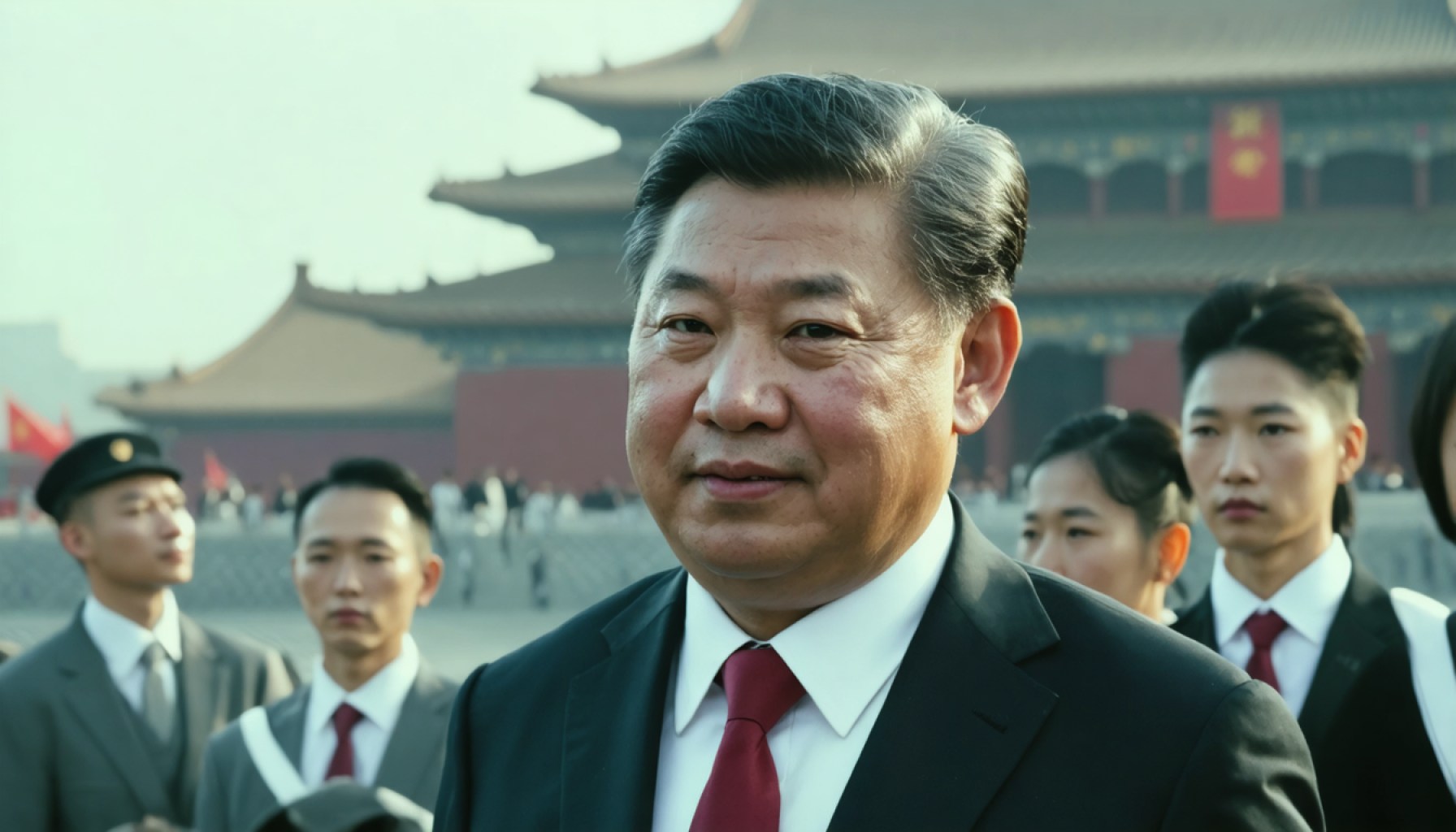- The investigation into Jiang Chaoliang marks a significant event in China’s political landscape, highlighting efforts to combat corruption.
- Jiang, an influential figure, served as the Governor of Jilin Province and Party Secretary of Hubei Province, focusing on agricultural and rural development.
- The Central Commission for Discipline Inspection and the National Supervisory Commission are leading the probe into alleged misconduct.
- This investigation emphasizes the importance of transparency and accountability within China’s government.
- The case underscores the complex challenges and high standards of integrity demanded from those in power.
- It offers insights into how China’s political system navigates contemporary issues, holding broader implications for governance and public perception.
Amid China’s ever-evolving political landscape, a new chapter has captured the nation’s attention: a high-profile investigation into Jiang Chaoliang, a seasoned figure in the corridors of power. Often found steering the ship through tumultuous waters, his career witnessed peaks as the Governor of Jilin Province and the Party Secretary of Hubei Province. Now, though, he stands at the eye of a different kind of storm.
Born in August 1957, Jiang had long been a fixture in the nation’s governance, occupying influential roles that placed him at the forefront of agricultural and rural development. From these commanding heights, he helped shape policy and guide provinces through significant change. However, the recent allegations suggest a narrative of misconduct, spelling a potential turning point in his storied career. The Central Commission for Discipline Inspection and the National Supervisory Commission, China’s premier bodies for such investigations, have turned their attention to him with a sharp focus.
The implications of this probe stretch beyond the fate of a single man; they underscore a rigorous push against corruption within the country’s governmental ranks. As this scrutiny unfolds, it paints a vibrant picture of the challenges facing those in power—where navigating the political seas demands not only skill but the utmost integrity.
For the public, this investigation serves as a reminder: in this age of transparency, accountability is paramount. It offers an ongoing study of how China’s political system grapples with the issues of its time, promising lessons both harrowing and hopeful.
The Dramatic Turn: What Jiang Chaoliang’s Investigation Reveals About China’s Political Climate
How-To Steps & Life Hacks: Navigating China’s Political Landscape
To understand the complexities of China’s political environment, it’s vital to follow the evolution of past and current governance strategies:
1. Stay Informed: Keep abreast of news from credible sources such as the South China Morning Post to monitor political shifts.
2. Understand Party Dynamics: Familiarize yourself with the structure and function of the Communist Party of China, which governs the country.
3. Analyze Historical Context: Study case histories of previous political figures who faced similar investigations to grasp patterns and outcomes.
4. Engage with Local and Global Analysis: Participate in forums and discussions that provide insights into how these political scenarios impact global relations.
Real-World Use Cases: Anti-Corruption Initiatives in China
China’s crackdown on corruption has led to several high-profile investigations besides Jiang Chaoliang’s, serving as crucial lessons for similar governance systems:
– Zhou Yongkang Case: The investigation of former security chief Zhou Yongkang highlighted China’s commitment to addressing corruption at the highest levels.
– Bo Xilai and Chen Liangyu: Both faced convictions, showcasing the far-reaching implications of corruption and mismanagement and the impact on public trust.
Market Forecasts & Industry Trends
Political stability in China directly influences market confidence and economic trends. Investors closely watch such legal proceedings, which can shift:
– Market Sentiment: Stability perceptions can affect investment strategies in Asia-Pacific markets.
– Policy Direction: Shifts in leadership may signal new regulatory approaches impacting domestic and international businesses.
Reviews & Comparisons: Political Investigations in Global Context
Compared to western governance systems, China’s anti-corruption drive demonstrates:
– Higher Centralization: Rapid, decisive actions are often possible within China’s centralized authority, impacting the political and economic landscape efficiently.
– Distinct Judicial Processes: Trials and investigations may proceed with different degrees of transparency and public involvement than in democracies.
Controversies & Limitations
Jiang Chaoliang’s investigation highlights significant challenges:
– Transparency Issues: Critics often argue that internal investigations lack transparency, impacting international perceptions.
– Political Motivations: Some investigations might be perceived as politically motivated purges, especially during power transitions.
Features, Specs & Pricing: Governance Practices in Focus
The Central Commission for Discipline Inspection operates with features unique to China’s governance:
– Broad Jurisdiction: Overseeing party discipline, it has powerful investigatory capabilities, able to scrutinize officials at all levels.
– Expedited Procedures: Investigation timelines can be swift, aligning with state priorities.
Security & Sustainability: Ensuring Robust Governance
Efforts like those against Jiang Chaoliang underline important facets:
– Promoting Integrity: These probes aim to strengthen governance integrity, encouraging public trust and political sustainability.
– Civic Engagement: Transparency initiatives and public participation are gradually being encouraged, aligning with global governance trends.
Insights & Predictions
Jiang Chaoliang’s situation suggests future considerations:
– Increased Oversight: Expect more robust checks and balances and higher accountability standards within Chinese politics.
– Strengthening Institutions: China may continue refining its disciplinary bodies to better align with international practices while retaining its unique governance style.
Pros & Cons Overview
Pros:
– Effectiveness in addressing corruption.
– Swift resolution capabilities.
Cons:
– Potential lack of transparency.
– Risks of perceived political bias.
Conclusion with Actionable Recommendations
– Engage Critically: Stay informed and critically appraise events in Chinese politics to anticipate global impacts.
– Diversify Information Sources: Use a mix of domestic and international news to gain a comprehensive understanding of political developments.
Stay vigilant and proactive, as these insights can shape both current understanding and future interactions with China’s political and economic spheres.
